- Home
- JoAnn Ross
Sea Glass Winter Page 6
Sea Glass Winter Read online
Page 6
“Good, because I definitely didn’t mean to insult you… . If we had more time”—she glanced down at her geeky relativity watch with its rotating numbers—“I’d introduce you to Johnny, but if you do try out for the team, you’ll meet him this afternoon.
“And don’t worry about finding things to do around here. There are lighthouse tours, and all the nearby towns have historical museums, if you’re into that sort of thing. And the Oregon Coast Aquarium and Hatfield Marine Science Center are just down the coast highway in Newport. Some Oregon State University scientists working there predicted an undersea volcano five years before it even happened.”
“Did it actually blow out of the water?”
“No, there was a lava flow on the seafloor. But it still would’ve been way cool to see.”
She said it with the same awe and excitement girls back at his old school might’ve reported a Robert Pattinson—the pale, skinny heartthrob from Twilight—sighting. “So I guess you want to be a scientist?” Matt asked.
“Actually, I want to be a family physician. Or maybe a pediatrician, because I really like kids. Which is why I’m volunteering at the clinic. But, to the despair of my mother—who was probably accessorizing her pacifier to match her onesies in her cradle—I take after my dad. I guess nerd runs in my DNA.”
It sounded like she’d guessed right. But she was pretty cute for a nerd. Of course her not liking basketball was a negative.
“From your schedule, you must like math and science, too,” she said.
“They’re okay,” he said with an indifferent shrug as he hung his jacket on a hook inside the locker. “But I mostly take them because they’re easy for me. So I can concentrate more on basketball.”
Matt loved being on that polished wooden floor, doing what he did best. There were lots of times, lying in the dark in bed after a game, although he’d never in a million years admit it, that he’d fantasize about his father reading about him being drafted first into the NBA for a multimillion-dollar contract and realize the mistake he’d made, tossing his own son away and never looking back.
As good as that story was to think about, he’d never figured out what he’d do if the father he’d never known actually did show up to make amends. Would he forgive him? Or would he turn his back on the guy whose only contribution had been to supply the sperm and say, “Too little, too late, dude.”
“Does that mean you won’t be joining the science club?” Her question broke into the thoughts he’d been having more and more often since his mother had told him that they were leaving California, and no, he didn’t have a vote.
“Probably not.” After he twirled the lock, they began walking down the hall again.
“That’s too bad. Next week Mr. Slater’s taking a cannon down to the beach and we’re going to shoot it off.”
“That sounds kinda cool,” he admitted.
“Oh, I think it’ll be a lot of fun. Also, there’s great skiing at Willamette Pass, which isn’t that far away. The ski club takes a big trip there every year. Maybe you’ll want to join them.”
“I’ve never been skiing.”
“That makes sense, since you grew up in Los Angeles. But you’re an athlete; it shouldn’t be that hard to learn. They have classes and beginner slopes, so you could ease into it. The ski trip’s during Christmas break and we have a really great time. And if you don’t enjoy skiing, there’s snowboarding on the back of the mountain. Lots of guys really like that.”
Having already blown off the science club idea, although he had no intention of risking an injury that could prevent him from playing college, then pro ball, Matt said, “I’ll think about it.”
“Great.” She smiled up at him as they passed a couple plastered together against a locker.
The girl was blond and the guy was wearing a blue Dolphins jacket. The graduation year on the right sleeve indicated that he was a senior. Matt wondered what sport he’d lettered in.
“We have two classes together,” she continued, either not seeing the hallway make-out session or choosing to ignore it. “Mechanical physics with Mr. Slater, who’s really nice and, as you probably already know, the basketball coach.”
“Yeah. I figured that out when I saw the schedule.”
“And after lunch is Mrs. Lessman, Honors English.”
Oh, yay. Although his stupid test scores and grades had landed him in the honors program, English wasn’t his favorite subject because, unlike whipping through a math problem, reading took time away from the three hundred shots he made himself take every day.
And reading lists were lame, since most of the books were written by dead writers about boring olden days. Though he’d checked online while they’d still been in L.A., and Pat Conroy’s A Losing Season, which he’d already read without being assigned to do so, turned out to be on Dorktown High’s assigned list. Of course so were two Jane Austen novels, which girls always seemed to go orgasmic about.
When he’d complained about those to his grandmother, shortly before she died, she’d briskly told him that sulking was unattractive. Then she’d added that girls liked boys who were able to discuss something other than sports and cars.
So he’d tried reading Pride and Prejudice, and although he’d been hoping it’d at least have some sex in it, his grandmother had turned out to be right. Just carrying it around had been a chick magnet, causing even senior girls to comment on how nice it was to see a guy willing to “embrace his sensitive side.”
What he didn’t bother to tell them was that he’d given up at about page fifty and settled for watching the movie. It had been slow and way too talky, but the way Keira Knightley’s nightgown kept sliding off her shoulder sort of made up for the boring parts. Unfortunately, his teacher caught his ruse when he made the mistake of including the scene in his report of Elizabeth running over the bridge and Mr. Darcy running after her to declare his great and abiding love.
Who knew that hadn’t been in the damn book?
She stopped in front of an open classroom door. “Here we are.”
Students were bustling around inside, talking as they took their seats. All his life he’d lived in the same house. Gone to school with mostly the same kids, though some had come and gone because of things like divorce, movie flops, and TV show cancellations. But he’d stayed. Until now.
Not able to prolong the inevitable any longer, while Aimee took her seat at the front of the classroom, Matt went over to the scarred wooden desk and handed over the form the woman at the office had given to him.
“Good to have you, Matthew,” said Coach Slater, who was a lot younger than his BHHS coach had been.
He was wearing jeans, a black sweater over a blue shirt, and blue Converse Chucks. He looked kind of like Ryan Reynolds, from all the comic book superhero movies. His tone was friendly but casual, as if he didn’t realize the player who could save Shelter Bay High School basketball was standing in front of him.
He introduced Matt to the class. Some managed a mumbled “hi.” The girls openly checked him out, while the guys were a lot less welcoming.
“You should have been given a lab notebook,” Coach Dillon said.
“It’s right here.” Matt held up the spiral-bound notebook.
“Terrific. Take a seat anywhere.”
There were three empty seats. Two were next to girls whose glossy smiles offered open invitations that were tempting. The third was at the back of the rows of seats. Having learned early in life that kids complained about him blocking their view of the blackboard, Matt chose that one, slouching down on the seat-desk combo, which, like every other one he’d had since third grade, was too small for his height.
“I don’t know how it was done at your previous school,” the teacher-coach said. “But here you’ll only be documenting the actual lab reports on the right-hand side of the page. The left will be used for lectures or class discussion notes. Your first line should be the title I give you. Then the page will be divided into labeled sections, which
should always be included, because your notebook will be part of your grade.
“As you’ve undoubtedly learned, physics labs always center on a question that’s being investigated. That question should be written as a purpose statement in the first section, labeled Purpose.
“Next is data and documentation. You can use tables, graphs, diagrams, and observations. I’m not looking for an essay here, or even complete sentences. What you will want to do is show your work for each type of calculation you performed and clearly label and document your findings—because they’ll be evidence you’ll use to draw a conclusion to the question you’ve listed in your purpose.
“Then you’ll write your conclusion statement, which always refers to the purpose statement. Again, I’m not looking for an essay or thesis here, although the conclusion should be long enough to answer the purpose question.
“Finally, include any comments on why data may not have proven what you expected it to, variables to the experiment, anything along those lines… .
“Any questions?”
Matt looked up from madly writing on the inside cover of the lab notebook. He didn’t think the guy had taken a breath while rattling off all those instructions. “No, sir.”
“Great. So, everyone, listen up,” he called out, stopping the low buzz of conversation that Matt guessed was a lot about him. “Today’s lab is on work, energy, and power, and the question is: ‘What is the effect of varying the release location of a marble along an incline upon the distance which the marble drives a paper plow along a level plane?’
“You’ll write an equation to describe the effect. Presuming that there is one.”
He paused while everyone dutifully wrote the question into their lab books.
“Everyone will be divided into two teams, red and blue. Your purpose will be to determine the effect of the release location—which is the distance from the bottom of the plane—of the marble and determine a mathematical equation describing the relationship between the two variables.”
Another too-short pause to allow for more scribbling.
“Once you’ve determined that, the blue team will release the marble from a given location, which you’ll have to determine, that’ll result in it driving your paper plow a distance of two centimeters. Red team, you’ll drive yours for five centimeters.
“Want to know what reward you’re playing for on this lab assignment?”
Matt had never had a class run like the Survivor TV show. He just hoped he wouldn’t end up getting voted off the island, which would be the pits. Like the rest of his life had turned out to be.
“A pizza party,” a guy in the second row suggested.
“With beer,” another said.
“Sorry, pizza’s out since I don’t want the lunchroom ladies to feel I’m honing in on their territory. And you’ll have to wait until you’re twenty-one for the beer.”
“How about a get-out-of-class-free card?” someone else shouted out from the middle of the room.
“Nope. But this is nearly as good… a get-out-of-the-next-pop-quiz card.”
That definitely got everyone’s attention. Including Matt’s.
“So.” He held up a rumpled brown paper bag. “Come draw your chips to determine your teams, and let’s get started.”
Slater seemed like an okay guy. Taking a typical lab class and turning it into a challenge was pretty cool. Especially since, being an athlete, Matt enjoyed competition.
But from the way the guy had gotten right down to business, hardly taking a breath as he’d rattled off the lab book instructions, Matt had the feeling that unlike in other science classes he’d had in the past, there’d be no skating in this one.
And if the guy coached basketball in the same way he taught his class, instead of breezing in as a savior, Matt realized that he might actually be made to prove himself on the court this afternoon.
Not that he was worried.
Piece of cake, he thought as he pulled a red chip from the bag.
8
The Dancing Deer Two boutique was located on Harborview, the main street in town. Despite the drizzle, the sight of the tidy shops with their bright wind socks blowing in the sea breeze lifted Claire’s spirits, as it always seemed to do. Although residents of Shelter Bay, for the most part, had a twenty-first-century view of their place on the planet, the town also seemed to be a throwback to another, easier-going time.
When people knew one another, cared about one another, and life moved a great deal more slowly.
Since it was low tourist season, traffic was nonexistent, allowing her to park right in front of the store with its cheerful green-and-white front awning. The bell on the door jingled as she entered the boutique, which smelled of potpourri and, as always, fresh baked goods.
“Oh, you’re just in time.” Dottie, one of the two elderly twins who owned the shop, greeted her. “Doris has just brewed a cup of the tastiest chai tea from Lavender Hill Farm. It’s a black tea with touches of orange and cranberry that makes you think of Thanksgiving.”
“It sounds great. But I’d rather not think about the holiday.”
“I understand,” Doris said, “being that this will be the first Thanksgiving without your mother.”
“I’ll miss her terribly,” Claire said. “But I have to admit that I also miss her cooking every day. I can’t even boil an egg. My poor son’s been living on frozen dinners and takeout, which has me feeling like the world’s worst mother.”
“I’m sure he wouldn’t agree,” Dottie said. She patted Claire’s arm with a plump hand. “And I realize that you must have so much on your plate, what with moving to a new place and enrolling your boy in school, but you should consider taking classes at Chef Maddy’s new cooking school.”
“Madeline Durand has a cooking school? Here?”
While Claire might not cook, she was hooked on the Food Channel. It was one of the few things she and her mother had had in common. She’d heard from the real estate woman that the chef was helping her grandmother turn the family farmhouse into a restaurant, but a school hadn’t been mentioned.
“Along with her new restaurant,” both women said together. Claire had noticed, during her first visit to the boutique last year, that they often spoke at the same time, without seeming to notice they did it.
“But she’s Madeline Chaffee now,” Dottie divulged.
“She married her high school sweetheart,” Doris said. She patted her breast. “It was so romantic. Wasn’t it, sister?”
“It was a lovely wedding,” Dottie agreed as she handed Claire a pretty flowered cup of dark amber tea. “On Moonshell Beach. Her husband used to be a summer boy. Now he’s settled down and is working as a contractor.”
“A building contractor?” Claire perked up at that.
“He remodeled Lavender Hill farmhouse for Maddy’s restaurant and cooking school,” Doris said. “He’s also been working like a beaver on the former cannery, which is already home to some lovely shops, with more to come.”
“I noticed that while I was looking for a house to buy.”
Claire didn’t mention having momentarily considered setting up a retail space when the real estate agent had told her about the shops. Until she remembered that would put her in direct competition with the two sisters who’d proven such good customers.
“How are you liking the cottage now that it’s yours?” Dottie asked.
“I love it.”
“It’s on a spectacular piece of land,” Doris said.
“Which is why I bought it. That and the fact that the detached garage is perfect for my glassblowing studio. But I knew at the time it would be too small, and it is. Matt and I are already bumping into each other.” When he wasn’t behind locked doors, avoiding her.
“Oh, Lucas would be able to solve all your problems,” Dottie said. “He put up that display wall for us just last month when we decided to expand our gift shop section.” The wall in question held shelves and a glass display case. “It’s pr
oven very popular.”
“I’m glad it’s working out for you. Especially since it gives me another outlet for my blown glass.”
Claire was used to film people buying her jewelry, but receiving a note from Irish movie star Mary Joyce, asking for a custom piece after she’d bought a more commercial item in this very store, had blown her away.
“That’s something I’ve been meaning to mention,” Dottie said. “You know about our resident whales.”
“They’d be hard to miss.” The whale logo showed up in the windows of seemingly half the businesses in town, and during the tourist season lines of visitors waited at the seawall to board the ubiquitous whale-watching boats.
“Well, we were thinking perhaps you might want to create glass whales for the summer tourist trade,” Doris said. “Not the typical touristy cheap things you can find in all the knickknack shops, but with your usual exquisite quality and attention to detail.”
“We know we could sell quite a few,” Dottie picked up her part of the sales pitch again.
Claire groaned inwardly. It wasn’t that she didn’t know how to blow glass animals. While she’d been learning the craft, she’d taken a lesson from a glassblower at Disneyland, who could turn out Sleeping Beauty’s Castle, Cinderella, or a glass slipper while customers waited. And while the artist had received a great deal of joy from people’s enjoyment of his work, she knew she’d be bored in a week doing such cookie-cutter items.
“That’s something to consider,” she said, keeping her answer as vague as possible for now. “Well, as much as I’d love to stay and visit, I just wanted to drop off this jewelry before stopping by the market for a frozen pizza.”
“You know, dear,” Doris said, “you might want to drop into Farraday’s Fish Monger.”
“Oh, I would kill fish,” Claire said. “I mean, I know it’s already dead. But it’s way beyond my skill set.” As she’d already discovered the hard way, even pancakes were beyond her culinary abilities.

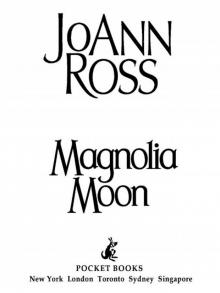 Magnolia Moon
Magnolia Moon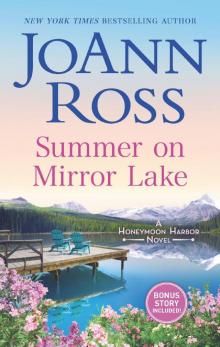 Summer on Mirror Lake
Summer on Mirror Lake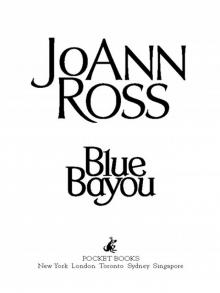 Blue Bayou
Blue Bayou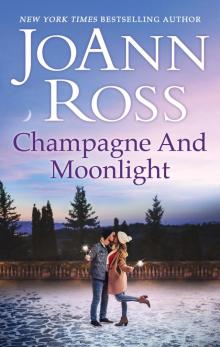 Champagne and Moonlight
Champagne and Moonlight No Regrets
No Regrets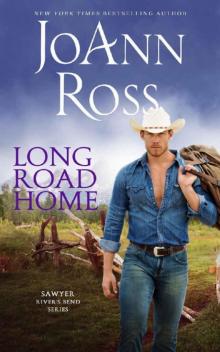 Long Road Home
Long Road Home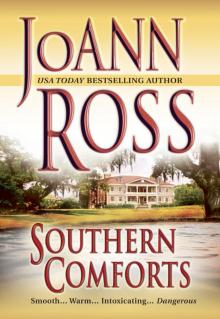 Southern Comforts
Southern Comforts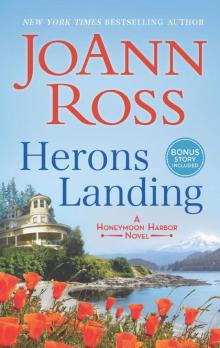 Herons Landing
Herons Landing Untamed
Untamed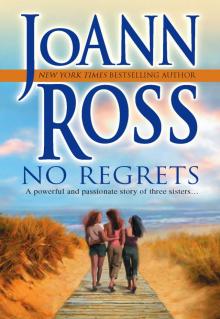 No Regrets (Mira Romance)
No Regrets (Mira Romance)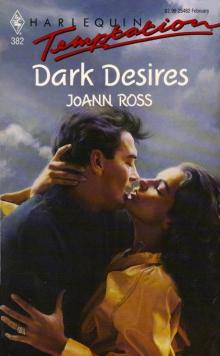 Dark Desires
Dark Desires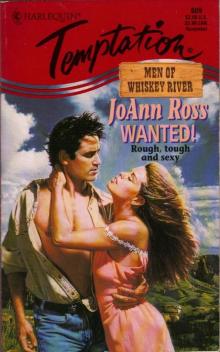 Wanted!
Wanted!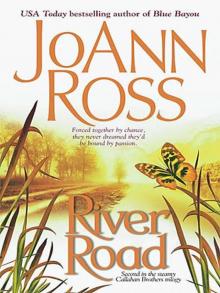 River Road
River Road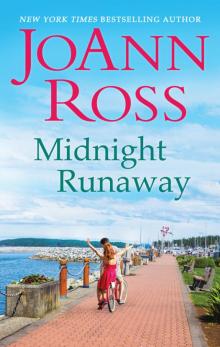 Midnight Runaway
Midnight Runaway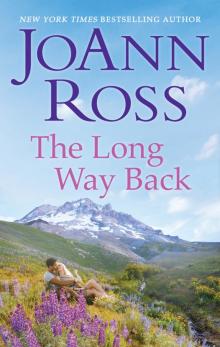 The Long Way Back
The Long Way Back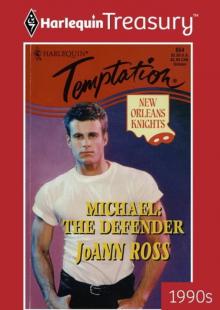 Michael: The Defender
Michael: The Defender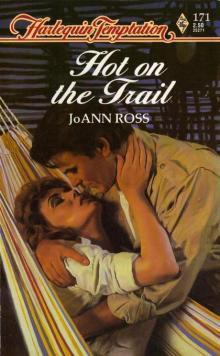 Hot on the Trail
Hot on the Trail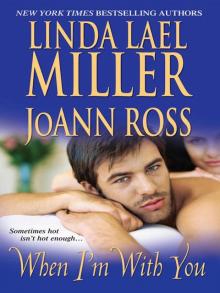 When I'm With You
When I'm With You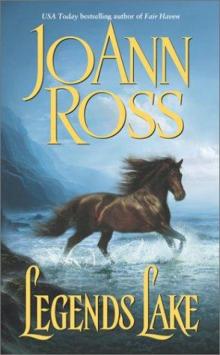 Legends Lake
Legends Lake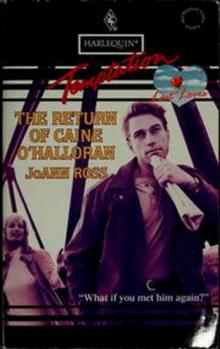 The Return of Caine O'Halloran
The Return of Caine O'Halloran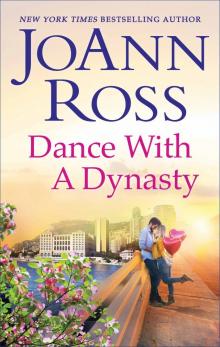 Dance with a Dynasty
Dance with a Dynasty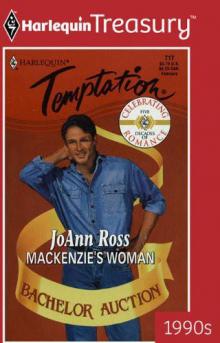 MacKenzie's Woman
MacKenzie's Woman Impulse
Impulse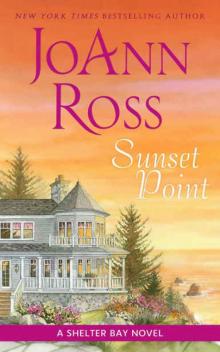 Sunset Point: A Shelter Bay Novel
Sunset Point: A Shelter Bay Novel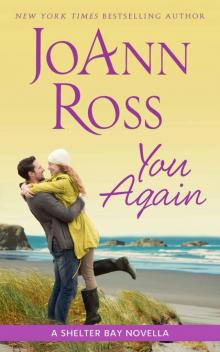 You Again: A Shelter Bay novella (Shelter Bay series Book 8)
You Again: A Shelter Bay novella (Shelter Bay series Book 8)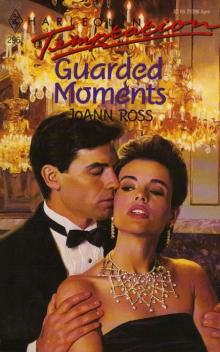 Guarded Moments
Guarded Moments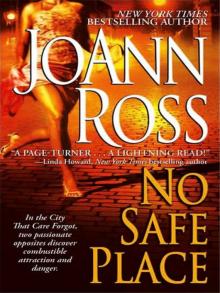 No Safe Place
No Safe Place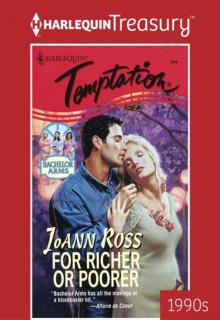 For Richer or Poorer
For Richer or Poorer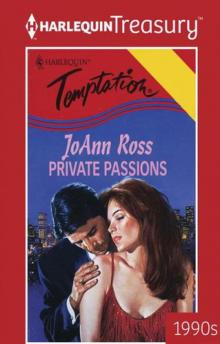 Private Passions
Private Passions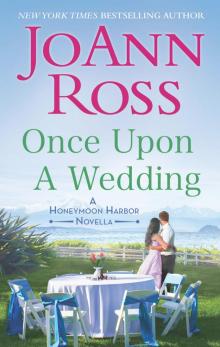 Once Upon a Wedding
Once Upon a Wedding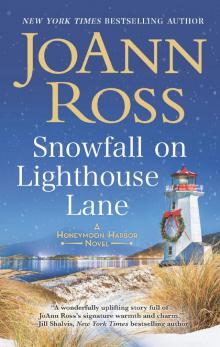 Snowfall on Lighthouse Lane
Snowfall on Lighthouse Lane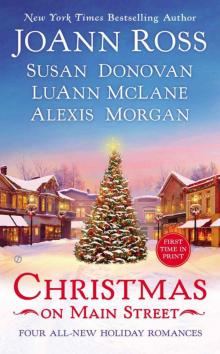 Christmas on Main Street
Christmas on Main Street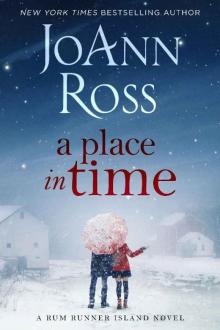 A Place in Time (Rum Runner Island Book 1)
A Place in Time (Rum Runner Island Book 1)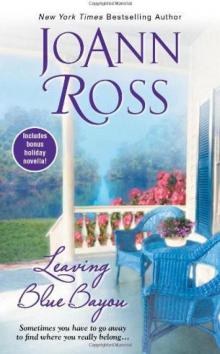 Leaving Blue Bayou
Leaving Blue Bayou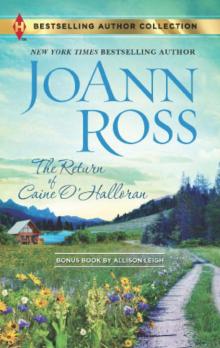 The Return of Caine O'Halloran: Hard Choices
The Return of Caine O'Halloran: Hard Choices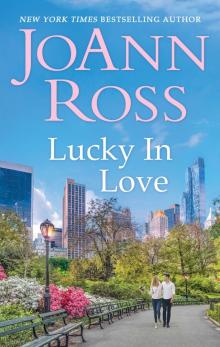 Lucky in Love
Lucky in Love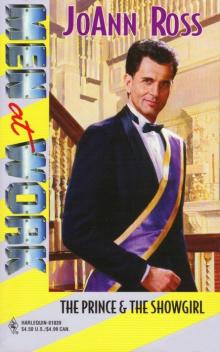 The Prince & The Showgirl
The Prince & The Showgirl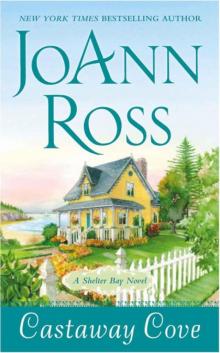 Castaway Cove
Castaway Cove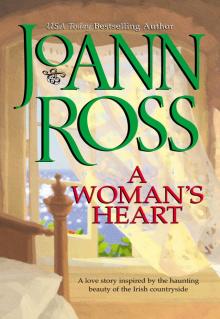 A Woman's Heart
A Woman's Heart One Summer
One Summer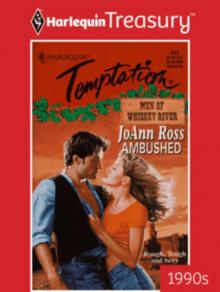 Ambushed
Ambushed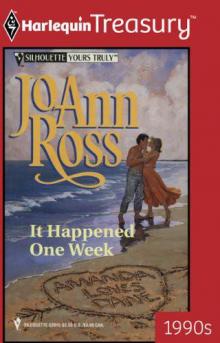 It Happened One Week
It Happened One Week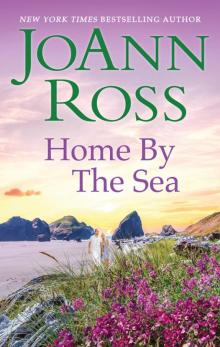 Home by the Sea
Home by the Sea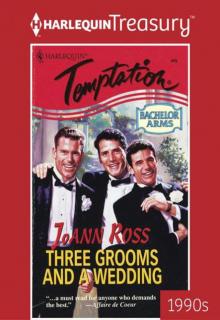 Three Grooms and a Wedding
Three Grooms and a Wedding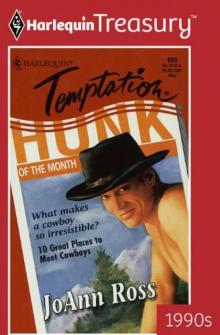 Hunk of the Month
Hunk of the Month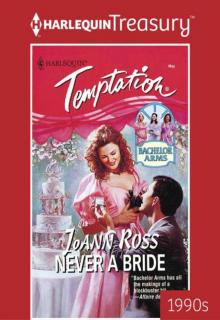 Never a Bride
Never a Bride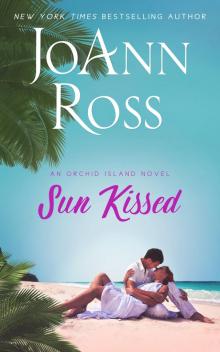 Sun Kissed
Sun Kissed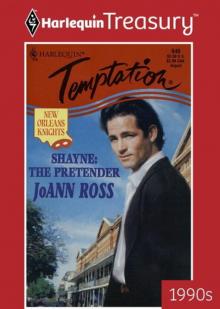 Shayne: The Pretender
Shayne: The Pretender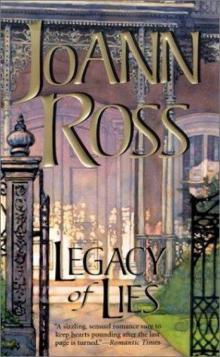 Legacy of Lies
Legacy of Lies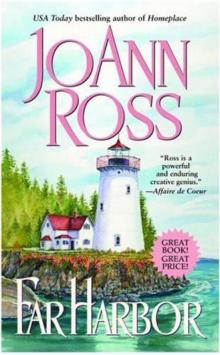 Far Harbor
Far Harbor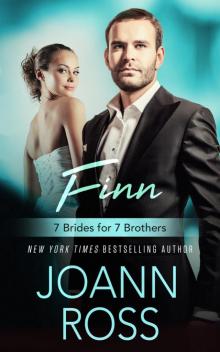 Finn
Finn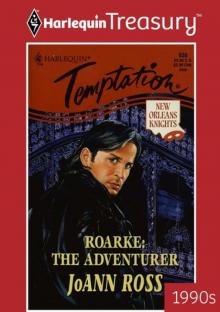 Roarke: The Adventurer
Roarke: The Adventurer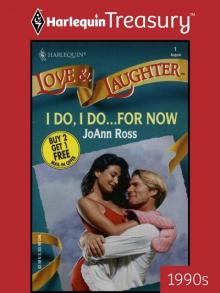 I Do, I Do...For Now (Harlequin Love and Laugher)
I Do, I Do...For Now (Harlequin Love and Laugher) Briarwood Cottage
Briarwood Cottage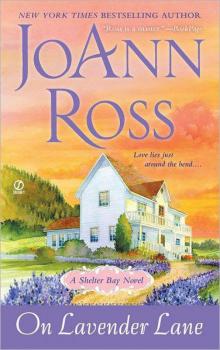 On Lavender Lane
On Lavender Lane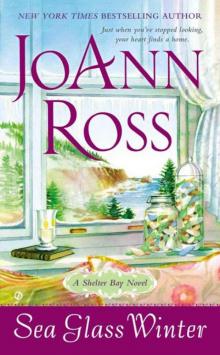 Sea Glass Winter
Sea Glass Winter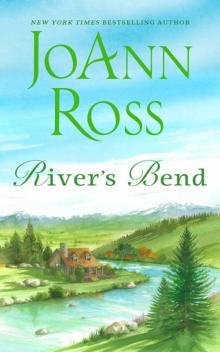 River's Bend
River's Bend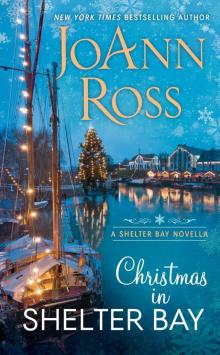 Christmas in Shelter Bay
Christmas in Shelter Bay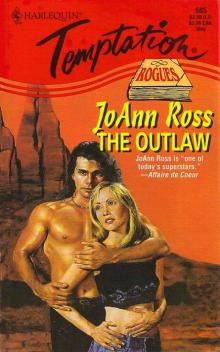 The Outlaw
The Outlaw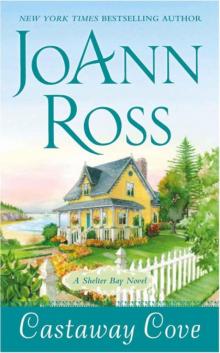 Castaway Cove (2013)
Castaway Cove (2013)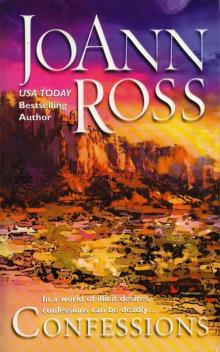 Confessions
Confessions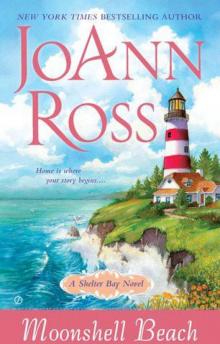 Moonshell Beach: A Shelter Bay Novel
Moonshell Beach: A Shelter Bay Novel